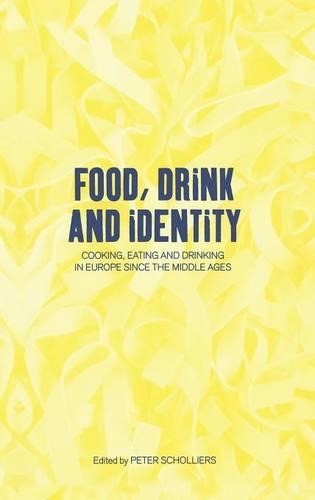
Food, Drink and Identity: Cooking, Eating and Drinking in Europe since the Middle Ages
(Hardback)
Available Formats
Publishing Details
Food, Drink and Identity: Cooking, Eating and Drinking in Europe since the Middle Ages
By (Author) Peter Scholliers
Bloomsbury Publishing PLC
Berg Publishers
1st September 2010
United Kingdom
Classifications
General
Non Fiction
Anthropology
Cookery / food and drink / food writing / cookbooks
306.4
Physical Properties
Hardback
240
Width 156mm, Height 234mm, Spine 18mm
Description
Food and drink have provided fascinating insights into cultural patterns in consumer societies. There is an intimate relationship between food and identity but processes of identity formation through food are far from clear. This book adds a new perspective to the existing body of scholarship by addressing pivotal questions: is food central or marginal to identity construction Does food equally matter for all group(ing)s Why would, in people's experience, food become especially important at one moment, or, on the contrary, lose its significance The origin of food habits is also interrogated. Contributors investigate how, when, why and by whom cooking, eating and drinking were used as a means of distinction. Leading historians and sociologists look at concepts of authenticity, adjustment, invention and import, as well as food signs and codes, and why they have been accepted or rejected. They examine a wide range of periods and topics: the elderly, alcohol and identity in Early Modern Europe; food riots and national identity; noble families, eating and drinking in eighteenth-century Spain; consumption and the working class in the nineteenth century; commensality; the meaning of Champagne in Belle-Epoque France; the narrative of food in Norway; wine and bread in French Algeria; food and identity in post-war Germany. This intriguing book brings together new, comparative insights and research that allow a better understanding of processes of integration and segregation, the role of food in the construction of identity, and the relationship between old and new food habits.
Reviews
'A refreshing addition to the field of food studies ... This book makes an important contribution to food studies by placing food in the foreground of identity formation as well as explaining how various groups have used food at various times.' Journal of Social History 'Always interesting and rewarding to read.' The Economic History Review 'In general this series is highly valuable to people interested in the history of nutrition especially given the many interesting case studies presented.' Sozial und Kulturgeschichte 'An intriguing book that presents a history of food in a reader-friendly style.' suite101.com
Author Bio
Peter Scholliers Professor of History,Vrije Universiteit Brussel
